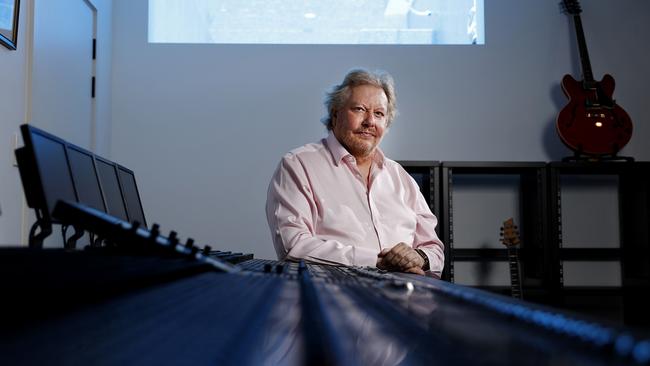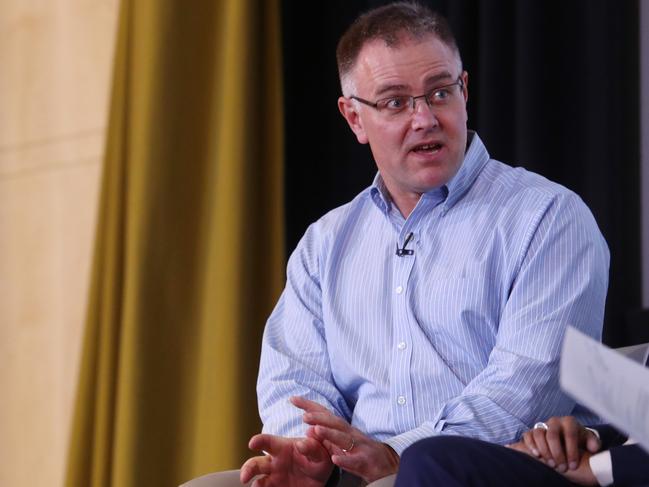
Indeed, White has made the sudden decision not be involved in the running of WiseTech and has stepped down from the board of the company he co-founded exactly three decades ago.
It still took White too long to get to this position, but it is the right call for the billionaire to step away. WiseTech’s shares were up as much as 20 per cent on Friday following his exit.
After taking a short period of leave White will take up a $1m-a-year consulting role centred on product and business development. Here White’s role - with the title of founder and founding CEO - will be largely symbolic and one of input. In this he will report directly to the board and leave the running of the business entirely to others.
The focus will now be on WiseTech’s board to ensure the right guardrails are in place for White’s consulting agreement. This is to get the best from the WiseTech founder and to ensure he isn’t managing from the sidelines, a real risk given his hold over the company and the decision to include the words CEO in his new job title.
White had initially indicted he was prepared to dig in and stay on as CEO as scandal swirled around his private life. Given White’s and WiseTech’s reputations were so closely connected this was becoming damaging to the $40bn tech company and clearly untenable. After multiple discussions with independent chairman Richard Dammery this week, it all crystallised for White on Wednesday night – the eve of WiseTech’s 30th birthday celebrations.
Why did it take so long? It is understood the billionaire had initially approached the decision to exit much like he thinks about solving complex software problems. Those who have worked with him say he obsesses about it, it takes a while, but once it come together, he moves ahead with absolute certainty.
For White it became increasingly clear that he had nothing left to prove by hanging on to the letters “CEO” in his title.

There is no doubt this has been a monumental decision for the billionaire, who turns 70 in December, as well as a deeply emotional call that has been made during a turbulent period.
Even with the clear air that WiseTech now has, White’s exit will be a major test for the tech player. Like all founder-led companies, investors are about to find out if there will be a WiseTech without Richard White.
This comes down to whether over the years White really has built a strong management platform around him, or if it was all him driving the company.
Still, big shareholders say there has to a fair bit of substance to the company, given the logistics software produced by WiseTech now dominates many of its markets and it operates in over 180 countries. The WiseTech technology is used by every one of the top 25 global freight forwarders in the world. Without a doubt the trigger for White’s exit has been the sensational revelations about his personal life in recent weeks. That came about as a result of his own poor judgment in pursuing former lover Linda Rogan with a bankruptcy motion through the courts.
The case was finally withdrawn this week, with White offering to settle but the damage had been done. Several more former lovers came forward, each with their own sensational allegations about how they met White.
It was only when allegations about generous payments to a former female executive were made that the board felt it had enough of a platform to step in and launch its one probe into White’s past behaviour – which is now under way. White hasn’t responded to requests for comment, and in his affidavits lodged with the Federal Court he has denied the allegations made against him.
The saga was badly hurting WiseTech, with its shares down 25 per cent since the legal case emerged, representing billions in lost value.
WiseTech shares took another 6.3 per cent dive on Thursday, falling below the critical $100 a share mark, as short-sellers started smelling blood in the water.
White took the long-planned 30th anniversary to outline his decision to exit in a speech to more than 1000 staff gathered at the company’s Sydney headquarters.
In the speech White said he had just come from three meetings in a row which all involved product development teams.
“I’ve been the happiest I’ve been in so long,” White said, according to several people present at the town hall briefing. “And that reality hit me that there are all these things that I’m doing and holding on to as the CEO which is not what I enjoy or which is not what drives me.
“As someone who builds, builds companies, and, seeks to achieve incredible things that others say are impossible, that’s what drives me,” White said in the speech.
At the meeting he called out chief financial officer Andrew Cartledge, who steps up as interim chief executive. White also cited Vlad Bilanovsky, WiseTech’s chief execution officer, as well as several others in his top management team.
“These are the people who can do these (management) roles better than me in those regards, and I acknowledge that, and I accept that,” White said, according to those present. He went on to say he knew where he could “truly and fundamentally” add the most value to the company over the next decade and this was in the product development role. There’s more management change likely to come. Cartledge has delayed plans to retire while a search for a permanent chief executive is under way. Deputy chief financial officer Caroline Pham will step up as CFO in this period.

Dealing with the circumstances surrounding the exit of a dominant founder is one of the most difficult tasks a board can face. Independent chair Richard Dammery early on had opened the door for White to step aside for a period, but that was not immediately taken up.
If White was an ordinary CEO at just another ASX-listed company his board would have forced him to stand aside as soon as the details of his private life came out.
But White was the founder, the single biggest shareholder and the chief executive. Given the stunning success of WiseTech, White also had his own strong supporters inside the boardroom.
Dammery, a career corporate lawyer, had recognised the potential for disruption was immense, particularly given White, who built WiseTech from scratch, had become so intertwined with its strategy.
The chairman had started getting feedback from WiseTech’s other big investors in the past week, and momentum was building for White to put forward a succession plan.
In a statement Dammery said White “is a true giant of the Australian technology industry, and he has built one of our most remarkable corporate success stories”.
The chairman also hinted that White had also come to the view he had a responsibility as an investor.
“By proposing this change in role, Richard has put the company and its shareholders first, and he has taken the natural next step in evolving his role as founder to best add value to WiseTech for the long-term,” the chairman said.





Richard White is finally thinking like a shareholder: the best way to protect and increase the long-term value of his billions tied up with WiseTech is to step away.